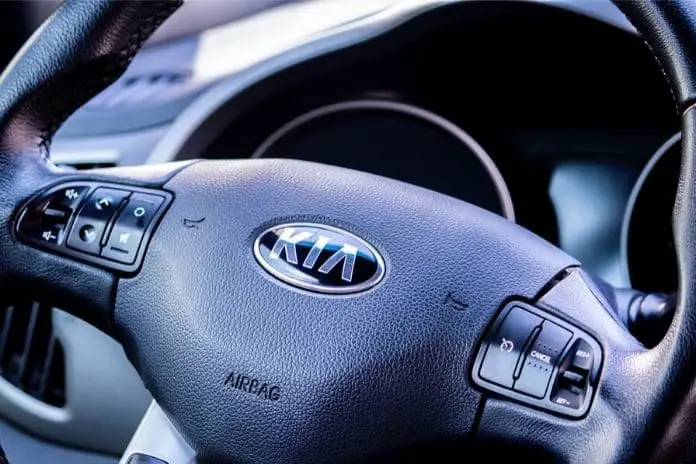
Kia is a brand known for producing top-notch quality vehicles with excellent reliability. It is also a car manufacturing company famous for its significant warrant policies that offer exceptional coverages.
These policies with unique coverages make their comprehensive fleet of vehicles excellent investments. With Kia’s warranty policies, they ensure their clients the protection they need for a reasonable period of time.
They are providing plenty of benefits like free part replacements, repairs, and services. Their warranty also covers parts like batteries and other vehicle components.
What should you need to know about Kia battery warranty? Every Kia vehicle is under a standard warranty, which varies for the traditional and electric and hybrid ones. This is also the same for the batteries of the cars.
For the original component, the traditional 12-volt automotive battery, it is covered by a limited warranty good for three years (36 months) or 36,000 miles.
Within this period, a defective Kia power cell will be replaced for free, where Kia will shoulder the diagnostics, 100% cost of the battery replacement, and the installation.
For electric and hybrid vehicles, the EV Battery will have a ten-year (120 months) or 100,000 miles coverage, whichever is first to take place. The period will start counting from the date of its first service.
Within the warranty period, the battery will be covered for repairs needed to restore the battery capacity to at least 70% of its original capacity. If possible, the original components of the EV battery will be repaired, and the battery will be reinstalled to the vehicle.
In any case, the EV power cell is impossible to be repaired. It will be replaced with a new or remanufactured battery.
With regards to genuine Kia replacement batteries, they are covered by a 36-month limited warranty without any mileage. Starting from the installation date, the battery’s first 12 months will be covered by 100% replacement, including the service.
After the first year of the cell, the remaining two years will entitle the owner a prorated coverage for the replacement battery only. The owner will shoulder the expenses for diagnostics, installation, and other services.
<Proration Schedule for the Replacement Battery Coverage>
| Service Months | Clients Portion | Covered Portion |
| 13 – 16 months | 10% | 90% |
| 17 – 20 months | 30% | 70% |
| 21 – 23 months | 45% | 55% |
| 24 – 26 months | 60% | 40% |
| 27 – 30 months | 75% | 25% |
| 31 – 33 months | 85% | 15% |
| 34 – 36 months | 90% | 10% |
Now that we already established the entire coverage of this Korean car company’s battery warranty. We can now start going into other aspects of the policy.
Since you already know the coverage of a vehicle’s battery, what is covered on the new electric and hybrid vehicle battery, and the warranty for the genuine replacement batteries.
We can now talk about the responsibilities of the owner and what are the exclusions of the warranty!
Owner’s Responsibilities As Stated on Kia’s Warranty Policy
If you are a Kia owner, you have your responsibility to avoid your warranty from being nullified. It would be best if you considered this as doing your part, as the company will be doing its part when you claim your warranty.
If you want to maintain the coverage of your Kia warranty policy, you have to stand by and fulfill these responsibilities.
To give you a better picture of these responsibilities, and to be sure that you are doing your part, I listed them for you below:
1. Getting the Warranty Service
Your first responsibility as a Kia vehicle owner is to get its warranty service. You have to take your vehicle to a Kia sanctioned dealer and present your owner’s or vehicle manual to them.
This will ensure that your vehicle and its parts are registered to their database. This is also the same as Kia’s genuine battery replacements. Doing this will ensure that you will receive the service’s continuity, which is covered by the warranty.
Locating an authorized Kia dealership is also part of your responsibilities, but the company’s website will help you with that.
2. Proper Upkeep and Maintenance
As a Kia vehicle owner, your primary responsibility is to properly maintain your vehicle and its parts to keep it in top shape. This includes providing the proper upkeep of the car, and its components need to be able to deliver optimum performance.
It will also be your responsibility to operate and maintain the vehicle and its parts in accordance with the owner’s manual.
To maintain your warranty coverages, you also have to follow the various upkeep requirements described in the manual when it comes to various driving conditions.
To make it simple, you have to keep your vehicle, parts, and battery adequately maintained according to the owner’s manual.
3. Maintenance or Upkeep Records
Kia vehicle owners will also be responsible for keeping maintenance records as proof that the required upkeep has been done.
Every document related to the vehicle’s maintenance, including its parts, should also be kept in case they are requested or asked for future reference.
The manual also has some forms that can be used for scheduled maintenance, so using them is an excellent way of recording every maintenance activity.
Those are the primary responsibilities of the owner to be able to maintain the warranty. Keep in mind that these duties are also applicable to parts and replacement batteries.
So, be sure to bear these responsibilities in mind to make sure that the coverage of your warranty is maintained.
The Exclusions of the Battery Warranty of Kia
Apart from the owner’s responsibilities, Kia’s warranty also has several exclusions or the things that it doesn’t cover. Since I am only talking about the battery coverage, I only listed the exclusions of the warranty that has something to do with the batteries.
So, here are the things not covered by the Kia motor company below:
1. Damages Beyond the Control of the Manufacturer
The warranty of Kia states that the company won’t be responsible for the damages of the battery caused by abuse, misuse, alterations, modifications, tampering, accidents, corrosion, and any kind of improper use.
Accidentally damaging the battery by trying to make some modifications or by using incompatible chargers will void the warranty. Damages due to repair attempts by unauthorized Kia service providers will also make the warranty invalid.
If the battery is also damaged due to environmental factors like floods, hail, storm, and other related elements will also nullify the warranty.
2. Lack of Upkeep and Negligence of Maintenance
This car brand’s warranty will not cover any damages on the battery caused by poor upkeep or lack of maintenance. Damages and battery issues due to the negligence of its maintenance will also void the warranty policy.
Improper maintenance or lack of upkeep leads a battery to its demise, and damages, as well as issues that are caused by such reasons, will nullify the warranty of the cell.
If the battery refuses to work because it does not receive proper maintenance or if it is incorrectly maintained, the warranty will also be nullified.
Battery issues that are caused by consistently exposing it on high temperatures, storing it on extremely low temperatures, or exposing it to flames, will also void the warranty.
Leaving the battery with almost zero charge remaining for several days, immersing the battery to any kind of fluids, or not practicing proper charging will also damage the battery, these will also nullify the battery warranty of Kia.
3. Normal or Regular Deterioration
Battery issues, as well as damages caused by the normal wear and tear due to regular use, are also covered by Kia’s warranty. If the wear on the battery is severe and causes it to be defective, it will not be covered by the warranty policy.
The battery’s regular use will allow it to accumulate natural wear and tear, which is not covered. So, any issues or damage that may be caused by its normal deterioration will not be covered by Kia’s battery warranty.
The things that are not covered by the battery warranty of this car company is designed to make sure that you are doing your part as an owner. These exclusions are also there to protect them from false claims that may use the warranty in the wrong way.
So, if you want to have a valid warranty or coverage claim, you have to make sure that you are doing your part and follow their terms. Otherwise, the warranty will be voided.





